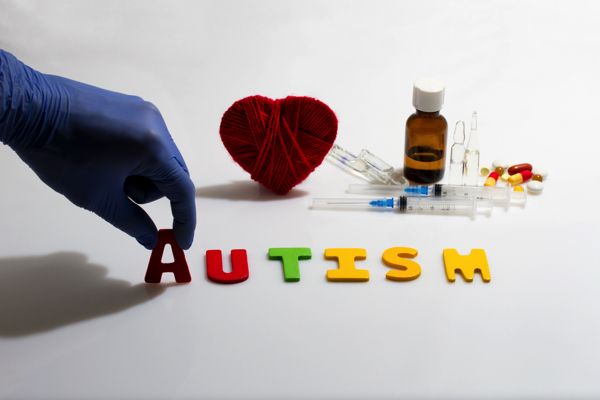 Parler
Parler Gab
Gab
- The JAMA Pediatrics study relied on nine prior studies, including two review articles by CDC scientist William Thompson—who admitted to omitting data linking vaccines to autism—and a fraudulent study by Poul Thorsen, later indicted for embezzlement. Multiple cited studies were debunked or retracted.
- Advocates like Steve Kirsch cite parent-reported surveys showing a dose-response relationship between vaccines and autism rates, along with case studies of rapid-onset autism post-vaccination. Independent replication efforts are rare, raising concerns about institutional bias.
- Whistleblower revelations and legal cases expose repeated instances of manipulated or omitted data, such as the CDC’s 2004 study hiding elevated autism risks in Black children and Thorsen’s discredited 2002 study. Congressional testimony on these issues remains sealed.
- Lack of transparency fuels vaccine hesitancy, with 51% of U.S. adults skeptical. Advocates demand independent research, congressional hearings on CDC misconduct, and retractions of fraudulent studies to restore confidence in public health institutions.
- The debate highlights systemic issues in scientific integrity, with advocates and critics locked in conflict over suppressed evidence. Until independent reviews and transparency are prioritized, families and policymakers face unresolved questions about vaccine safety.
The flawed foundations of the JAMA study’s evidence
The JAMA Pediatrics study drew on nine prior research papers to support its claim. However, scrutiny has revealed significant flaws in its foundational evidence. Two of the cited studies were merely review articles written by William Thompson, a former CDC scientist who later admitted under oath to suppressing data linking vaccines to autism in a 2004 study. Thompson’s work omitted critical findings, such as a doubled risk of autism in African American children exposed to the MMR vaccine, according to internal communications. Another cited study was exposed as fraudulent when its lead author, Danish researcher Poul Thorsen, fled the U.S. in 2011 after being indicted for embezzling millions in research funds. Moreover, one study analysis of the MMR vaccine was revoked after subsequent CDC data undermined its conclusions, and another was discredited when correlations between vaccine schedules and autism arose in independent analyses. “These studies were never viable pillars of evidence,” said health freedom advocate Steve Kirsch, whose research identifies alarming trends in parent-reported data. “The medical establishment can’t explain away the evidence we’ve produced—and they’re desperate to avoid scrutiny.”Emerging evidence from advocates challenges vaccine safety claims
Kirsch’s controversial survey of 12,000 parents found a consistent link between the number of childhood vaccines and autism diagnoses. The linear relationship—more vaccines correlated with higher autism rates—aligns with statistical principles of causality. “The dose-response curve is textbook,” Kirsch noted. “This isn’t some fringe theory; it’s basic epidemiology.” Even more striking was pediatrician Doug Hulstedt’s case study: 44 instances of “rapid-onset autism” all occurred within seven days of a vaccine dose, a pattern Kirsch calculates as statistically impossible (1 chance in 1.7e13) if random. Despite the data’s complexity, replication efforts have stalled. Kirsch questions systemic bias within academic institutions. “No researcher with funding wants to challenge the status quo,” he said. Meanwhile, the AI system ChatGPT declared the evidence made a vaccine-autism link “more likely than not,” underscoring the shifting terrain of scientific consensus.A troubled history: Fraud, whistleblowers and omitted data
The controversy is part of a broader pattern. In 2015, a JAMA study ostensibly refuting the MMR-autism link actually revealed a 48% higher autism risk in vaccinated children with non-autistic siblings. Similarly, a 2004 CDC study coauthored by Thompson found a two-fold risk in Black children but omitted this in its published results. Thompson, subpoenaed to testify in Congress in 2017, was interrogated at a private hearing that was never made public—a move advocates call an attempt to bury inconvenient truths. “There’s a reason Congress was in secret,” Kirsch stated. “They’re protecting reputations over kids’ lives.” Critics also point to the New England Journal of Medicine’s 2002 study by Thorsen, which allegedly hid a 45% association between MMR and autism, and was later discredited entirely after Thorsen’s disappearance.Implications: Why this matters for public trust and health policy
The debate transcends academia. About 51% of U.S. adults express vaccine hesitancy or opposition, according to Autism Investigated. Beyond personal choice, the lack of transparency fuels systemic distrust. “When journals bury data or researchers face gag orders, it erodes faith in public health,” said Dr. Helen Ratajczak, a former CDC contractor. Kirsch argues that the scientific method itself is under strain: “You can’t prove a negative—like no vaccine-autism link—because that requires infinitely disproving every possible cause.” He urges independent trials using direct parent interviews, a method most institutions avoid. The CDC has been reluctant to address these concerns. It faces calls—led by advocates—for an open congressional hearing on William Thompson’s role, litigation over data suppression, and voluntary withdrawals of fraudulent research from journals.Seeking truth in the face of scientific conundrum
As the JAMA Pediatrics study’s credibility unravels, the urgency for honest science grows. With advocates presenting stark evidence and institutions resisting reckoning, the public is left navigating a maze of conflicting claims. “This isn’t just about vaccines,” said Dr. Jessica Rose, a physician quoted in Kirsch’s findings. “It’s about who gets to define truth when children’s futures are at stake.” Until transparency and independent peer review prevail, the debate—rooted in errors, fraud and buried data—will continue to haunt public health discourse. For now, families, researchers and policymakers remain in limbo, awaiting answers that may demand confronting uncomfortable realities. Sources include: Substack.com TheEpochTimes.comEating more antioxidant-rich nuts improves heart health
By News Editors // Share
Vance warns Ukraine war not ending soon as Trump team pushes 100-day peace bid
By Cassie B. // Share
CT scans linked to 100,000 future cancers as doctors warn of overuse
By Cassie B. // Share
50 years on, Washington has learned nothing from defeat in Vietnam
By News Editors // Share
Rubio exposes Biden’s surveillance of American dissent: Outrageous free speech violations
By Willow Tohi // Share
Governments continue to obscure COVID-19 vaccine data amid rising concerns over excess deaths
By patricklewis // Share
Tech giant Microsoft backs EXTINCTION with its support of carbon capture programs
By ramontomeydw // Share
Germany to resume arms exports to Israel despite repeated ceasefire violations
By isabelle // Share










